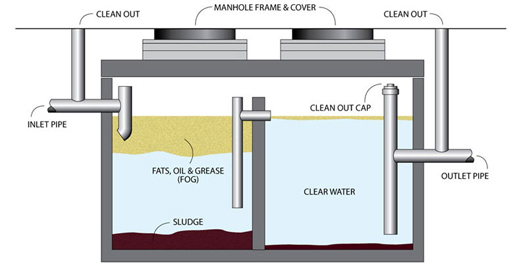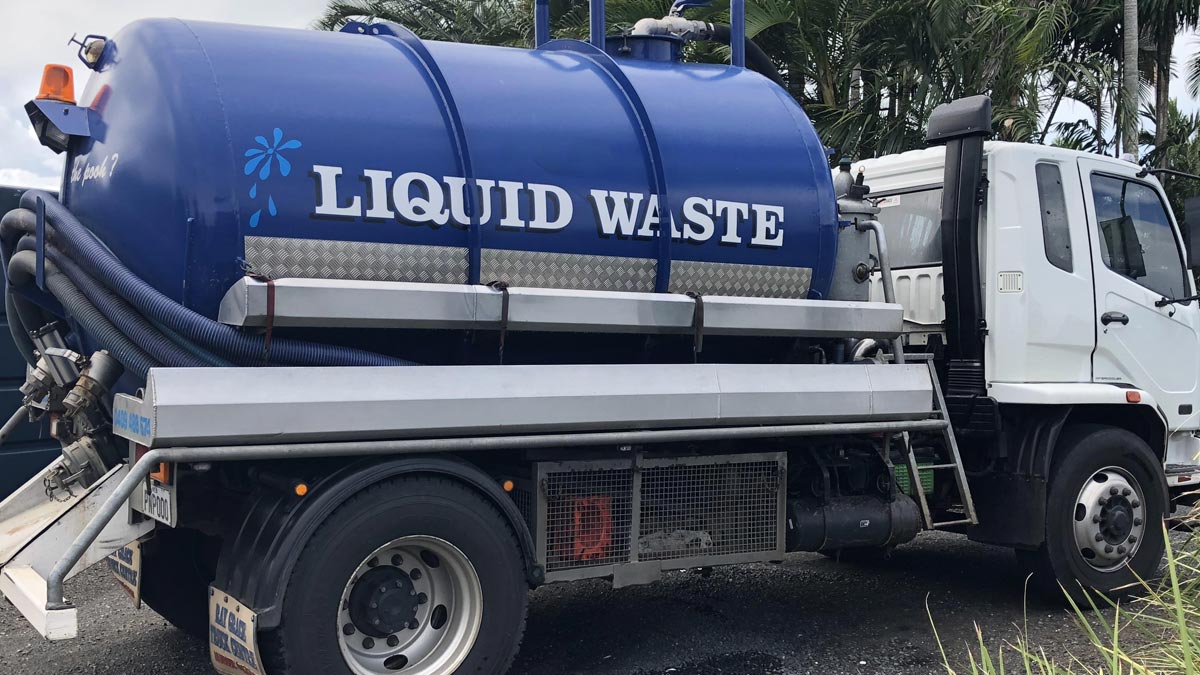Leading Industrial Wastewater Treatment Solutions: Making Certain Conformity and Effectiveness
Wiki Article
Recognizing the Comprehensive Process of Fluid Waste Disposal: Best Practices and Environmental Impact Factors To Consider
The monitoring of liquid waste disposal is a complex problem that requires a thorough understanding of numerous ideal practices and their connected environmental effects. From the types of fluid waste generated to the approaches used for collection, treatment, and last disposal, each step plays a crucial duty in guarding environments and public health.Types of Liquid Waste
Recognizing the various sorts of liquid waste is essential for efficient monitoring and disposal practices. Fluid waste can be generally classified right into several types, each requiring special handling and therapy methods.Industrial fluid waste frequently consists of harmful materials, including hefty steels, solvents, and chemicals, produced throughout producing processes. These wastes necessitate rigorous regulatory compliance to shield human health and wellness and the setting. Domestic liquid waste largely refers to wastewater produced from families, consisting of sewage and greywater, which, although less harmful, can still posture substantial threats if poorly managed.
Agricultural fluid waste, including drainage from farms, commonly consists of fertilizers and chemicals that can result in environmental destruction otherwise dealt with sufficiently. Medical liquid waste, created from health care facilities, includes contaminated fluids such as physical liquids and chemicals, requiring specialized disposal approaches to stop infection and environmental contamination.
Lastly, oil and grease waste, normally produced by restaurants and automobile industries, can cause severe obstructions in drain systems otherwise managed properly. Understanding these classifications facilitates targeted techniques for treatment, compliance with guidelines, and efficient disposal approaches, eventually advertising ecological sustainability and public health and wellness safety.

Collection Methods
Effective collection techniques are crucial for the appropriate monitoring of fluid waste, ensuring that it is gathered securely and successfully before treatment or disposal. Various strategies are used relying on the sort of fluid waste generated, the volume, and the particular features of the waste.One usual approach is using specialized collection tanks or sumps, which are designed to capture fluid waste at the resource. These systems typically integrate pumps that promote the transfer of waste to bigger storage space containers or treatment centers. In addition, mobile collection units equipped with vacuum cleaner innovation are employed in scenarios where waste is created periodically or in hard-to-reach locations.
For commercial settings, closed-loop systems can effectively minimize spills and leaks, enabling the healing and reuse of liquid waste. It is likewise vital to train workers on correct collection methods to reduce dangers linked with unsafe materials.
Furthermore, applying routine maintenance routines for collection equipment ensures optimal performance and safety. The integration of innovative monitoring systems can enhance collection effectiveness by providing real-time data on waste degrees and prospective threats. In general, effective collection techniques are foundational to sustainable fluid waste monitoring practices.
Therapy Procedures
Treatment processes play a crucial function in the administration of fluid waste, transforming possibly unsafe products into reusable sources or secure effluents - liquid waste disposal. These procedures can be extensively categorized into physical, chemical, and organic techniques, each customized to deal with details contaminants present in the waste streamPhysical treatment methods, such as sedimentation and filtering, job by getting rid of put on hold solids and particle issue. These methods are commonly the initial step in the treatment chain, efficiently decreasing the load on subsequent procedures. Chemical therapies entail making use of industrial wastewater treatment reagents to reduce the effects of harmful compounds, speed up hefty metals, or oxidize natural toxins, thereby enhancing the safety of the effluent.
Organic treatment procedures, consisting of triggered sludge systems and anaerobic food digestion, profit from the natural capabilities of microorganisms to weaken raw material. These techniques are particularly efficient for wastewater containing biodegradable toxins. Advanced treatment innovations, such as membrane purification and advanced oxidation processes, are significantly used to attain higher degrees of purification.
Including a mix of these treatment methods not just makes certain compliance with governing standards but likewise promotes ecological sustainability by recouping beneficial sources from fluid waste.
Disposal Options
Exactly how can companies guarantee the responsible and secure disposal of fluid waste? Effective disposal options are crucial for protecting public health and the environment. The main techniques include land treatment, incineration, and disposal adhered to by discharge right into municipal wastewater systems.Land disposal involves the careful containment of fluid waste in marked land fills, guaranteeing that it does not seep right into bordering soil or water. Incineration, on the various other hand, subjects fluid waste to heats, converting it into ash and gases, which require proper filtration to lessen emissions. This approach appropriates for harmful wastes that can not be treated via typical methods.
In instances where fluid waste can be dealt with, organizations may go with chemical or biological treatment procedures to counteract damaging elements before releasing the treated effluent into community systems. This route commonly straightens with governing demands, making sure that the effluent satisfies safety standards.
Ultimately, organizations need to perform detailed analyses of each disposal choice to determine its viability, thinking about factors such as waste structure, regulative compliance, and potential dangers to health and the environment. By selecting proper disposal approaches, services can add to a liable waste monitoring approach.
Environmental Influence
The ecological impact of liquid waste disposal is an essential factor to consider for organizations looking for to lessen their ecological impact. Additionally, the discharge of untreated or improperly dealt with waste right into surface area waters can result in eutrophication, leading to oxygen exhaustion and the subsequent death of fish and other microorganisms.
To reduce these influences, companies must take on finest methods such as applying rigorous waste therapy procedures, advertising recycling and reuse, and sticking to regulatory requirements. By taking a proactive technique to liquid waste administration, entities can considerably minimize their ecological impact while sustaining sustainable development goals. Ultimately, a comprehensive understanding of the environmental impacts related to liquid garbage disposal is necessary for notified decision-making and responsible stewardship of natural resources.
Conclusion
Reliable administration of fluid waste is crucial for securing environmental honesty and public health. By taking on ideal practices in treatment, disposal, and collection, alongside adherence to regulatory requirements, the possibility for damaging contamination of communities can be considerably reduced. Constant improvements in innovation and processes add to lasting waste monitoring initiatives. Eventually, a comprehensive understanding of liquid garbage disposal not just minimizes environmental impacts but additionally cultivates a commitment to liable resource management and environmental stewardship.The administration of liquid waste disposal is a diverse concern that calls for a complete understanding of numerous best techniques and their connected environmental effects. From the types of liquid waste created to the techniques used for collection, therapy, and final disposal, each action plays a critical duty in securing environments and public health and wellness.The environmental influence of liquid waste disposal is an important consideration for organizations looking for to lessen their eco-friendly impact. Ultimately, a comprehensive understanding of the ecological effects associated with fluid waste disposal is essential for informed decision-making and responsible stewardship of all-natural sources.
Eventually, a detailed understanding of fluid waste disposal not only reduces environmental impacts but additionally fosters a commitment to accountable source management and ecological stewardship.
Report this wiki page